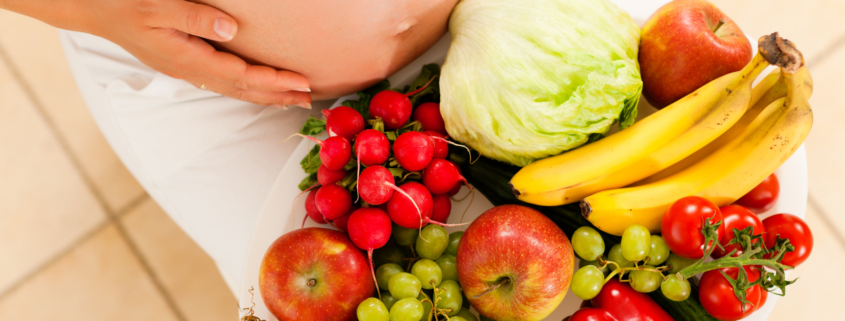It’s no surprise that there are a lot of myths about how to get pregnant. It can be difficult for women (especially if they’ve struggled in the past) to know what is true and what isn’t when it comes to getting pregnant, so I’m debunking 10 of the most common myths!
Myth 1. You can’t get pregnant while breastfeeding
While breastfeeding does delay ovulation, it is possible to get pregnant while breastfeeding. Ovulation occurs between 6-12 weeks after your baby’s birth, so you should start using birth control from when you’re about 6 weeks postpartum to be safe.
Myth 2. Having an orgasm during sex increases your chances of getting pregnant
This isn’t true either because only the egg makes its way down to the uterus after ovulation- so having an orgasm won’t help with implantation or getting pregnant.
Myth 3. If you’re over the age of 35, your chances of getting pregnant are slim-to-none
While fertility does decline as you get older, this is a myth that just won’t go away! Your chances of getting pregnant depend on what your and your partner’s medical history is like and there are plenty of women over the age of 35 who will testify to successful pregnancies.
Myth 4. You can’t get pregnant if you have sex during your period
It definitely isn’t the best time to try for a baby, but it is possible to get pregnant at any point in your cycle. However, there are ‘fertile days’ in each cycle when conception is more likely, so it’s best not to risk it too close to menstruation!
Myth 5. The timing of when you get pregnant is determined by luck and not planning
There is a lot of advice out there about the best time to try for a baby, but much of it comes from old wives’ tales! You can track ovulation or play it by ear and plan for sex around that time. Either way, you don’t have as much luck as you think.
Myth 6. You should wait at least six months before trying again after a miscarriage or stillbirth
After an early miscarriage, there is no medical reason to wait before trying for a baby. Doctors recommend waiting two periods before getting pregnant again after a late miscarriage or stillbirth/fetal demise.
Myth 7) Drinking alcohol doesn’t affect your chances of getting pregnant
In reality drinking too much alcohol can cause birth defects or miscarriage , so you should stay away from alcohol in general while trying to conceive.
Myth 8) Most couples who want children should try for three years before seeking medical help-
there are plenty of medical reasons to seek help earlier than three years, so talk to your doctor if you’re concerned.
Myth 9) It’s impossible to get pregnant during your period
While this can be true, it’s possible that ovulation occurred earlier than you thought so sperm could have been present in the days leading up to menstruation (and beyond).
Myth 10: If you lose weight, your chances of getting pregnant increase
This isn’t true- losing weight won’t change your fertility status and doesn’t affect men’s sperm count or motility either. Losing weight is great for overall health though but it isn’t linked to becoming pregnant.
As you can see, there are a lot of fertility myths out there! If you’ve been trying to conceive and it hasn’t worked, don’t get discouraged. Many couples struggle to get pregnant and some will require medical assistance in order to do so.


